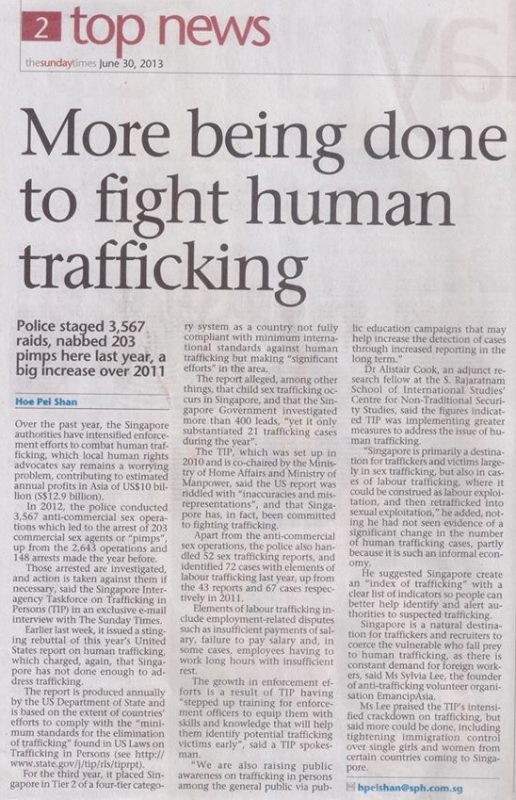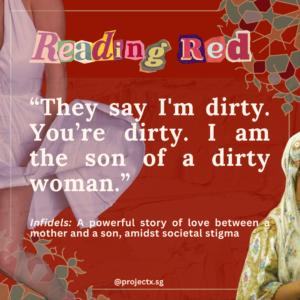Sex Workers Are Subjected To Violence
As an especially vulnerable group, sex workers are subjected to various forms of violence. The CEDAW committee, which supervises the implementation of women’s right in member states of the Convention of Elimination of All Forms of Discrimination against Women, named the involvement in sex work as one aspect which makes women more vulnerable to violence. The United Nations defines violence against women as ‘any act of gender-based violence that results in or is likely to result in physical, sexual or mental harm or suffering toward women, including threats or coercion or arbitrary deprivation of liberty’.
Just like all gender-based violence, violence against sex workers builds on the imbalance of power that arises from gender inequality, and is based on feelings of superiority that stems from patriarchal norms. In 2021, 29 cases which constituted reportable crimes were presented to Project X. Nine such cases consisted of sexual violence, like rape, stealthing (removal of a condom during sex acts) and tech-facilitated violence. 8 cases of financial violence were reported to Project X, where sex workers were not paid or robbed. Sex workers were harassed or stalked in another 7 cases and experienced physical violence in 5 cases. In 63% of these incidents, the customer was the abuser.
Sex Workers Do Not Have an Equal Access To Justice
Out of the 29 cases that were documented by us last year, only 3 were reported to the police. This is due to the fact that sex workers who attempt to seek justice by reporting crimes committed against them are often faced with the possibility of being arrested or prosecuted for being involved in sex work. Furthermore, practices such as entrapment and raids have caused a rift to form between sex workers and law enforcers, putting them on different sides and deepening their distrust of each other. The fear of being arrested, as well as the lack of trust sex workers have in law enforcement, leads them to be far less protected than non-sex workers from abuses of their rights. Criminalization of sex work also creates a great power imbalance between sex workers and their customers, thereby encouraging heightened gender-based violence and abuse towards the workers. Since sex workers rarely report these crimes, abusers become emboldened as they believe that they will not have to bear any consequences for their actions.
Sex Workers Are Subjected To Health Risks
Singapore is dedicated to ensuring a safe and healthy workplace for all. However, working in the sex industry comes with significant occupational health and safety risks. Besides the possibility of being abused, sex workers are also at risk of being exposed to sexually transmitted infections like HIV, gonorrhoea, and many others. To make sure sex workers have a healthy work environment, they need specialised services in sexual and reproductive health, as well as in violence prevention. This is especially important as there are many non-local sex workers who face additional difficulties when trying to access health services in Singapore. What increases the risk for sex workers is the fact that possession of condoms can be used as evidence in investigations for sex work related crimes, like solicitation. Sex workers are thus placed in a position where protecting themselves means exposing themselves to potential criminalisation.
In 1999, Wong Kan Seng (then Home Affairs Minister) said that eradication of sex work is impossible, and that full criminalisation of it would only do harm. If we have accepted that there is a need to have a sex industry, then we must protect the women engaged in the trade.
Sex Workers Are Affected by Stigma And Negative Stereotypes
Negative assumptions about sex workers have popularised two contradictory stereotypes: that sex workers are immoral women who deserve to be treated badly, or that they are helpless victims who have been forced against their will into sex work. In short, society either slutshames sex workers, or takes pity on them whilst refusing to acknowledge their autonomy or independence. These simplistic views ignore the complexities behind the lived experiences of many sex workers.
The notion that sex workers “deserve” poor treatment due to the nature of their work, and that there is nothing that we can do to prevent them being abused, condones violence against them. It places the blame on the victim of such abuses, rather than on the abusers themselves. By extension, it legitimises acts of violence committed against any women deemed to engage in behaviour that is sexually promiscuous. Hence, negative stereotypes around sex work do not only affect sex workers, but they also perpetuate archaic ideas around women’s sexualities and sex lives.
Assumptions that sex workers are all drug users, homeless, or come from broken families – and are therefore “bad women” who never learnt the “right” ideas around sex and morality – must be dispelled. All women, including sex workers, should have the ability to make choices about their sex lives without constant stigmatisation, and without having to face cruel assumptions about them.
Trans Sex Workers Rights Are Women’s Rights
A significant number of sex workers in Singapore are trans women. Since trans women are discriminated against based on gender identity they often face difficulties in accessing education and employment. This often leaves trans women with sex work as their only viable option. Trans sex workers face discrimination on multiple levels because they are not only discriminated against as sex workers, but also as trans women, which increases the stigma.
Conclusion: Decriminalize Sex Work!
Being subjected to violence, facing barriers in health care services, and being negatively affected by stereotypes are only some of the violations that sex workers face every day. To ensure sex workers have access to their rights, decriminalization and a health-based approach to sex work is necessary. The health-based approach handles sex work in a non-judgmental way and focuses primarily on sex workers’ health, thereby reducing violence and trauma. Moreover, decriminalization would provide sex workers with greater protection and security, as they will be able to report crimes without fear of being charged themselves. Minister of State Sun Xueling rightly pointed out that criminalization of sex work does not address the economic and social factors (like poverty) that push women into sex work, and that no country has ever successfully eradicated prostitution.
As a marginalized group, sex workers face rights violations at every corner. Without advancing the rights of one of the most vulnerable groups in society, we will never be able to reach true and total equality. That is why when working towards gender equality in Singapore we cannot forget about sex workers. Because sex workers rights are, indeed, women’s rights.
References
- Singapore Government (2020): Conversations on Singapore Women’s Development. <https://www.reach.gov.sg/Participate/conversations-on-singapore-womens-development>.
- CEDAW Committee (2017): General recommendation No. 35 on gender-based violence against women, updating general recommendation No. 19, para 12.
- World Health Organization (2021): Violence against Women. <https://www.who.int/news-room/fact-sheets/detail/violence-against-women>.
- Council of Europe (2022): What is gender-based violence? <https://www.coe.int/en/web/gender-matters/what-is-gender-based-violence>.
- Lauritsen, Janet L., and Karen Heimer (2008): The Gender Gap in Violent Victimization, 1973–2004. Journal of Quantitative Criminology, vol. 24, no. 2, Springer Science + Business Media, 2008, pp. 125–47.
- Ministry of Manpower (2020): Occupational Safety and Health Division. <https://www.mom.gov.sg/about-us/divisions-and-statutory-boards/occupational-safety-and-health-division>.
- Channel News Asia (2019): Sex work in Singapore: Will changes to the Women’s Charter be enough to tackle exploitation? <https://www.channelnewsasia.com/singapore/prostitution-sex-work-trafficking-womens-charter-bill-singapore-856301>.
- Huck Mag (2018): Why does feminism keep leaving sex workers behind? <https://www.huckmag.com/perspectives/opinion-perspectives/erika-lust-op-ed/>.
- Project X and Allard K. Lowenstein International Human Rights Clinic, Yale Law School (2015): They only do this to Transgender Girls: Abuses of Transgender Sex Workers in Singapore. <https://law.yale.edu/sites/default/files/area/center/schell/they-only-do-this-to-transgender-girls-singapore-report-final.pdf>.
- Ministry of Home Affairs (2019): Parliamentary Speeches: Second Reading of the Women’s Charter (Amendment) Bill 2019 – Wrap-Up Speech by Ms Sun Xueling, Senior Parliamentary Secretary, Ministry of Home Affairs and Ministry of National Development. <https://www.mha.gov.sg/mediaroom/parliamentary/second-reading-of-the-women-s-charter-amendment-bill-2019—wrap-up-speech-by-ms-sun-xueling-senior-parliamentary-secretary-ministry-of-home-affairs-and-ministry-of-national-development/>.






